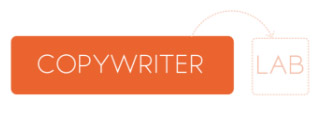Blockchain technology has been making significant strides in various industries, including healthcare. With its decentralized and secure nature, blockchain has the potential to revolutionize the way healthcare investments are managed and utilized. In this article, we will explore the role of blockchain in Voltprofit Max enhancing healthcare investments and how it can benefit both investors and patients alike.
Blockchain technology, originally developed as the underlying technology for cryptocurrencies like Bitcoin, has evolved beyond its initial application. It is a distributed ledger technology that enables secure and transparent recording of transactions across multiple nodes in a network. The key features of blockchain include decentralization, immutability, transparency, and security, making it an ideal technology for industries that require trust and transparency in transactions.
In the healthcare sector, where data privacy and security are of utmost importance, blockchain can play a crucial role in improving the efficiency and security of healthcare investments. By utilizing blockchain technology, healthcare organizations can securely store and share patient data, streamline administrative processes, and improve the overall quality of patient care.
One of the key benefits of blockchain technology in healthcare investments is its ability to enhance data security and privacy. With blockchain, patient data can be stored securely on a decentralized network, reducing the risk of data breaches and unauthorized access. This not only protects patients’ sensitive information but also ensures the integrity and accuracy of the data.
Moreover, blockchain technology can improve the efficiency and transparency of healthcare investments by enabling real-time tracking of financial transactions. Healthcare investors can use blockchain to monitor their investments, track the flow of funds, and ensure compliance with regulations. This level of transparency can help investors make informed decisions and mitigate risks associated with healthcare investments.
Another advantage of blockchain technology in healthcare investments is its potential to reduce fraud and improve the accuracy of financial transactions. By implementing smart contracts on the blockchain, healthcare organizations can automate processes such as claims processing, billing, and payments, reducing the risk of fraud and human error. This not only saves time and resources but also enhances the overall trust and credibility of the healthcare system.
Furthermore, blockchain technology can facilitate the interoperability of healthcare data, allowing different healthcare systems to securely exchange information and collaborate on patient care. By leveraging blockchain technology, healthcare organizations can break down data silos, improve care coordination, and enhance the quality of patient care. This interconnected ecosystem can lead to better health outcomes and improved patient satisfaction.
In addition to data security and transparency, blockchain technology can also provide cost savings and efficiency gains for healthcare investments. By eliminating intermediaries and streamlining administrative processes, blockchain can reduce overhead costs, improve operational efficiency, and maximize the return on investment for healthcare stakeholders. This can create a more sustainable and resilient healthcare system that is better equipped to meet the needs of patients and investors.
Overall, blockchain technology has the potential to revolutionize healthcare investments by enhancing data security, transparency, and efficiency. By leveraging the unique features of blockchain, healthcare organizations can improve the quality of patient care, reduce costs, and drive innovation in the healthcare industry. As the adoption of blockchain technology continues to grow, we can expect to see significant advancements in healthcare investments that benefit both investors and patients alike.
In conclusion, blockchain technology holds tremendous promise for enhancing healthcare investments by improving data security, transparency, and efficiency. By leveraging the decentralized and secure nature of blockchain, healthcare organizations can revolutionize the way healthcare investments are managed and utilized. As we continue to explore the potential of blockchain in healthcare, we can expect to see transformative changes that benefit the entire healthcare ecosystem.
